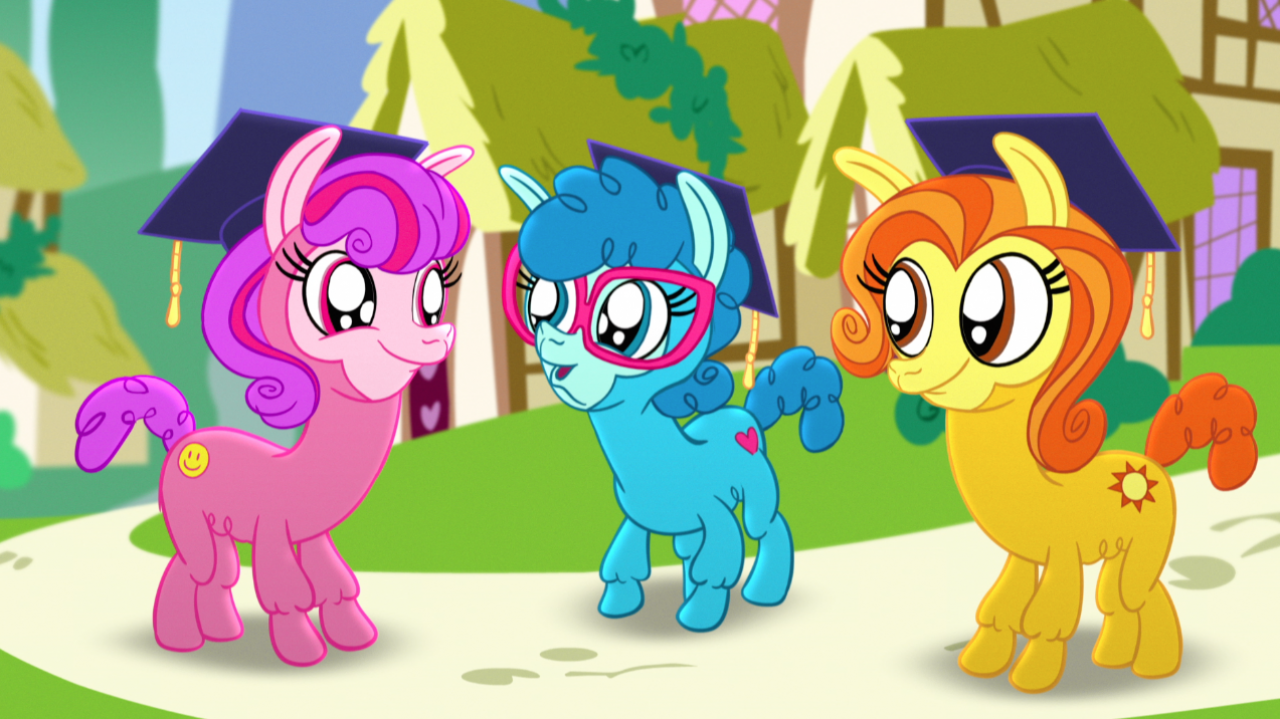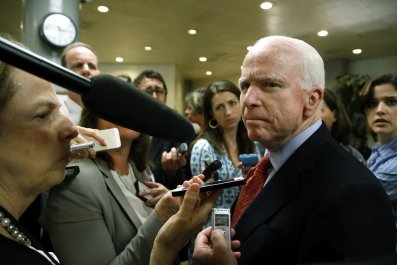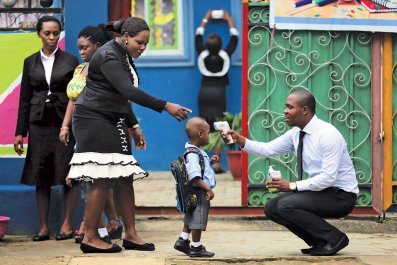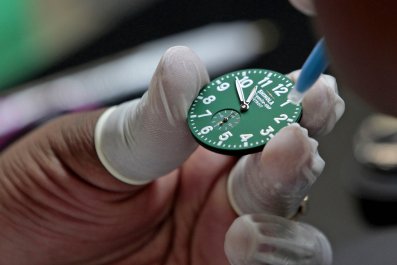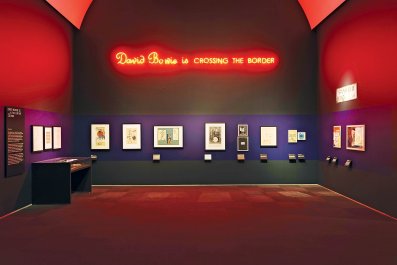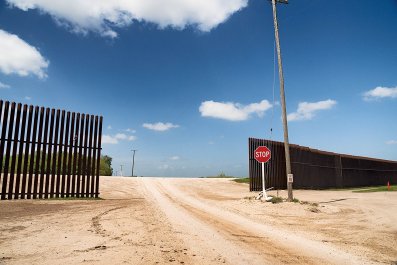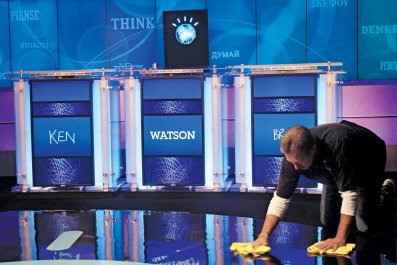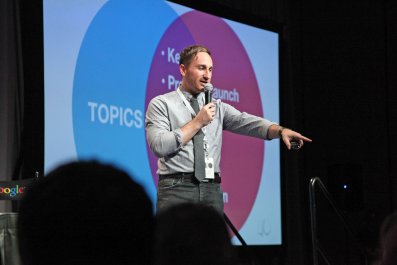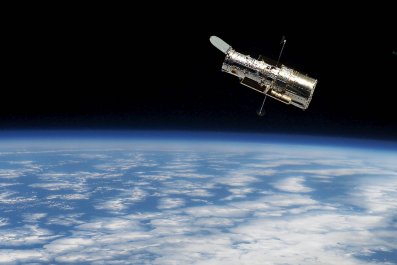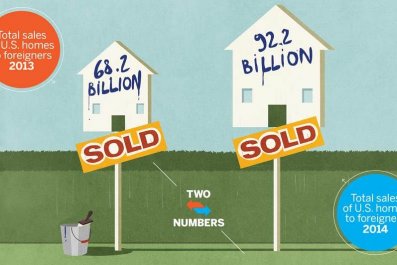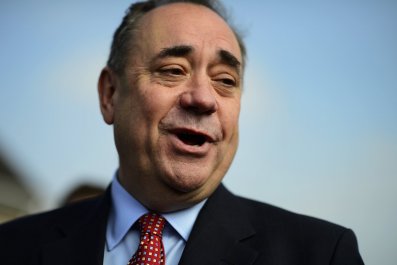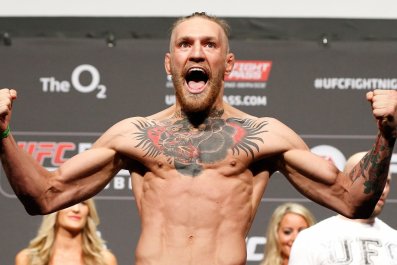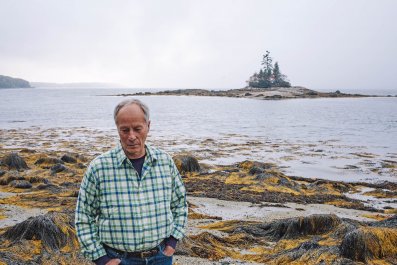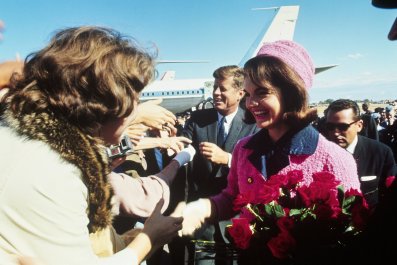Morgan Spurlock is best known for surviving—barely—on McDonald's burgers for a month in his documentary Super Size Me.
His latest challenge may be tougher still: making economics interesting. "We kind of tune out because we feel like it is so large and consuming and overwhelming and that we don't understand it enough, but we don't want to admit that because we don't want to seem like idiots," he says.
In an age of growing inequality, Spurlock is convinced that financial ignorance is not bliss. So the filmmaker recruited a bunch of big-name directors, actors and comedians to make 20 short films that tackle questions like: How does government regulate the economy? What do banks do with our deposits? Why do we have budget deficits and a national debt? Is China's boom good for our economy? Why is health care so expensive?
Would you like fries with your options swaps?
"I think that one of the keys to reaching a younger audience is not giving [them] medicine," says Spurlock. "I've sort of made a career making spinach taste like cotton candy. I think that this film series does a really great job of making cotton candy."
Spurlock's production company, Cinelan, and Paul G. Allen's Vulcan Productions unveiled the series We the Economy: 20 Short Films You Can't Afford to Miss at free screenings in 20 theaters across the country on October 20. The next day, We the Economy launched a website and mobile apps—which include the films, quizzes and other supplementary materials—and released the films through a long list of partners, from Hulu to YouTube.
Cinelan and Vulcan started just under a year ago with a team of financial advisers—professors from Columbia, Stanford and MIT; experts from the Center for Economic and Policy Research, the Brookings Institution and the Environmental Defense Fund; politicians and CEOs; and journalists, editor, and authors whose work has focused on economics—from whom they culled suggestions and whittled down a list of the 20 most important questions to tackle. The questions fall under five chapters: economy, money, role of government, globalization and inequality.
They then recruited 20 directors, including Bob Balaban (co-producer of Gosford Park), Adrian Grenier of Entourage, Catherine Hardwicke of Twilight and James Schamus of Crouching Tiger, Hidden Dragon, and paired them with advisers to ensure the films' accuracy. Given a question and no more restrictions than a time limit for the videos, a deadline and a budget, the directors were off to the races.
Spurlock's own film, Cave-o-nomics, explains how the economy got started and how the first markets emerged through the story of two cavemen who decided to trade well-crafted spears for hunted animals, and others who followed suit to sell tools, stone wheels and caribou suits. Spurlock appears as a caveman in the film, as do his advisers, business and financial historian John Steele Gordon and Adam Davidson, the co-founder and co-host of NPR's Planet Money.
Adam McKay, a former head writer for Saturday Night Live who has partnered with Will Ferrell to make films like Anchorman and Talladega Nights, went the animated route with The Unbelievably Sweet Alpacas!, his answer to "Is inequality growing?" He cast comediennes Sarah Silverman, Maya Rudolph and Amy Poehler as the voices of Happy, Giggles and Sunshine, who represent the top 1 percent, the top 20 percent and the bottom 80 percent of earners, respectively, as they get placed in different jobs at a lollipop factory.
"Whether it was being ripped off on credit card rates or not knowing my rights when it came to paying back student loans or even what the Federal Reserve is, I've always marveled at how the one subject we all should know, economics, is the subject most of us are completely illiterate about," McKay wrote in a director's statement. "Most people act as though advance degrees and tweed jackets are required to even discuss compound interest."
We the Economy might be able to fill in a gap of knowledge that news outlets don't always address, says Ryan Chittum, a media critic and deputy editor at the Columbia Journalism Review. "In business and economic journalism, almost all the time people are writing with at least some assumption of business and economic knowledge," he tells Newsweek, "and that is a barrier to entry, to understanding money and stocks and things that affect them."
Adam Davidson, who co-wrote the Alpacas script with McKay, says the series is pitched at a broader audience than the actively interested one he usually engages with at NPR or The New York Times Magazine, one that isn't convinced yet that it makes sense to spend time learning about the economy. "That ambition requires a totally different approach," he says.
Documentary makers Heidi Ewing and Rachel Grady took on the question "Why does the U.S. fund foreign aid?" in their eight-minute film called The Foreign Aid Paradox. Taking Haiti as a case study, they introduce the complex twist in which American farmers benefit from sending rice to Haiti while Haiti's agricultural economy—which used to import only 20 percent of its food, now up to 80 percent—has taken a blow.
"There are no villains here," Ewing tells Newsweek, but rather a series of interests that go into foreign aid and sometimes leave the interests of the country you're supposed to be helping in last place. "It's actually a very human story, says Ewing, who studied at Georgetown's School of Foreign Service before deciding to become a filmmaker. "The underpinnings of economics are very dramatic human stories."
Reaching the younger set
Spurlock isn't the only one who compares economics to spinach. Olivia Mitchell, a professor of economics at the Wharton School at the University of Pennsylvania, tells Newsweek that "young people tend to think about economics as they do about spinach: They don't like it, and they don't want any part of it. But spinach is good for you."
Annamaria Lusardi, a professor of economics at George Washington University and academic director of its Global Financial Literacy Excellence Center, has worked with Mitchell to research financial literacy—or as Mitchell says, "financial illiteracy."
Through several surveys, the two have discovered just how little Americans know about financial and economic topics, and pinpointed interest, inflation and risk diversification as the three most critical subjects for people to function effectively in the world.
While they welcome We the Economy, Mitchell says, "One caveat is that the topics are fairly macroeconomic but they don't necessarily emphasize the tools people would need to manage their own financial lives."
Ted Gonder, 24, is the co-founder and CEO of Moneythink, a nonprofit that believes financial education for young people can help restore the economic health of the U.S. He says filmmakers are in a unique position to get young people to care about money.
"Try teaching retirement concepts or 'what it means to be a citizen' to a 16-year-old who'd rather be texting her boyfriend about prom, and watch her fall asleep," Gonder tells Newsweek in an email. But "great directors think long and hard about the people, not just the ideas."
A broader goal of We the Economy is to help viewers make more sense of politics. "If you don't understand [economics], it's easier to get bamboozled, not just in your personal finance life but also by politicians," says Chittum.
As Bill Clinton's campaign managers summed it up years ago: It's the economy, stupid.



